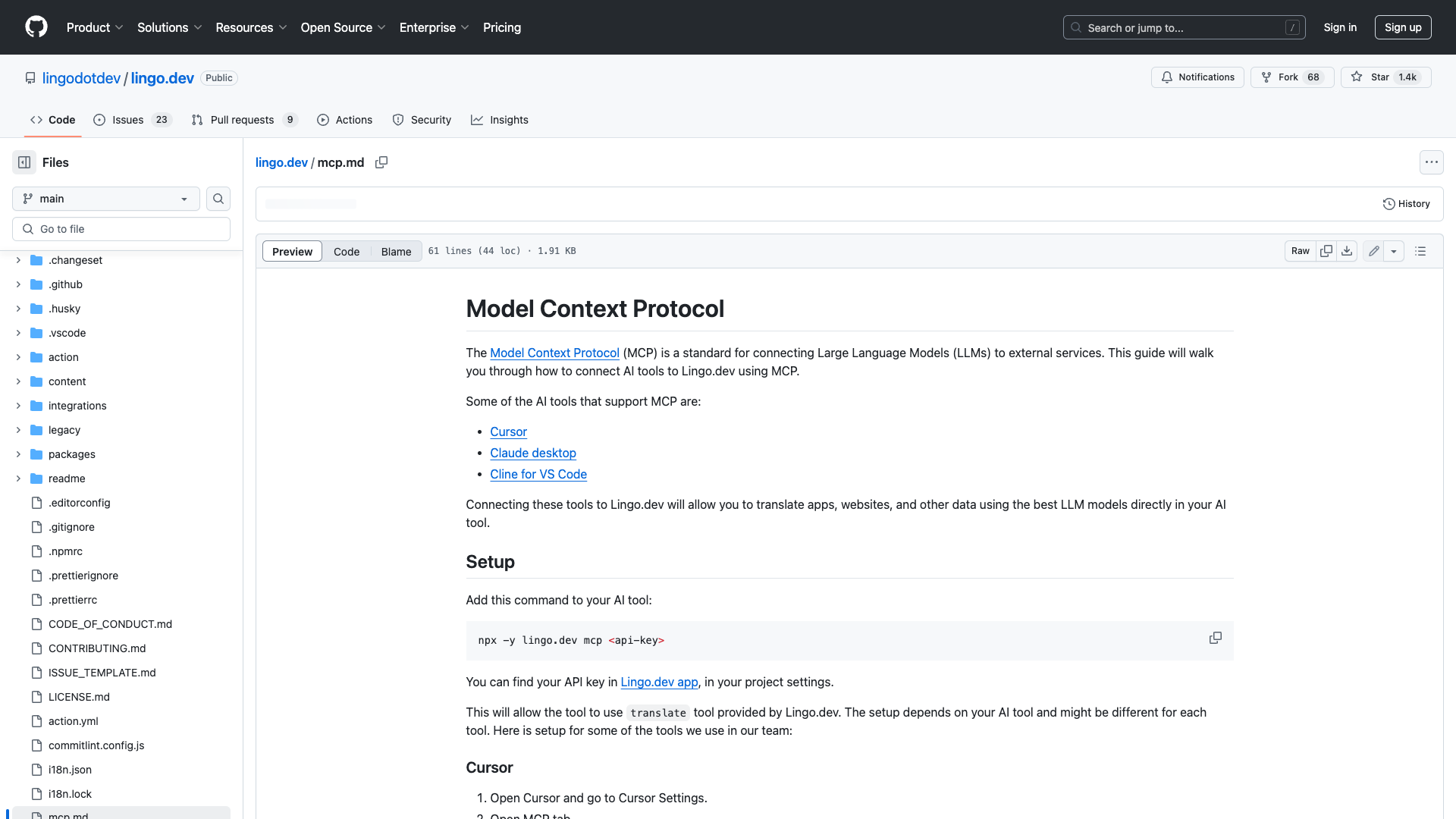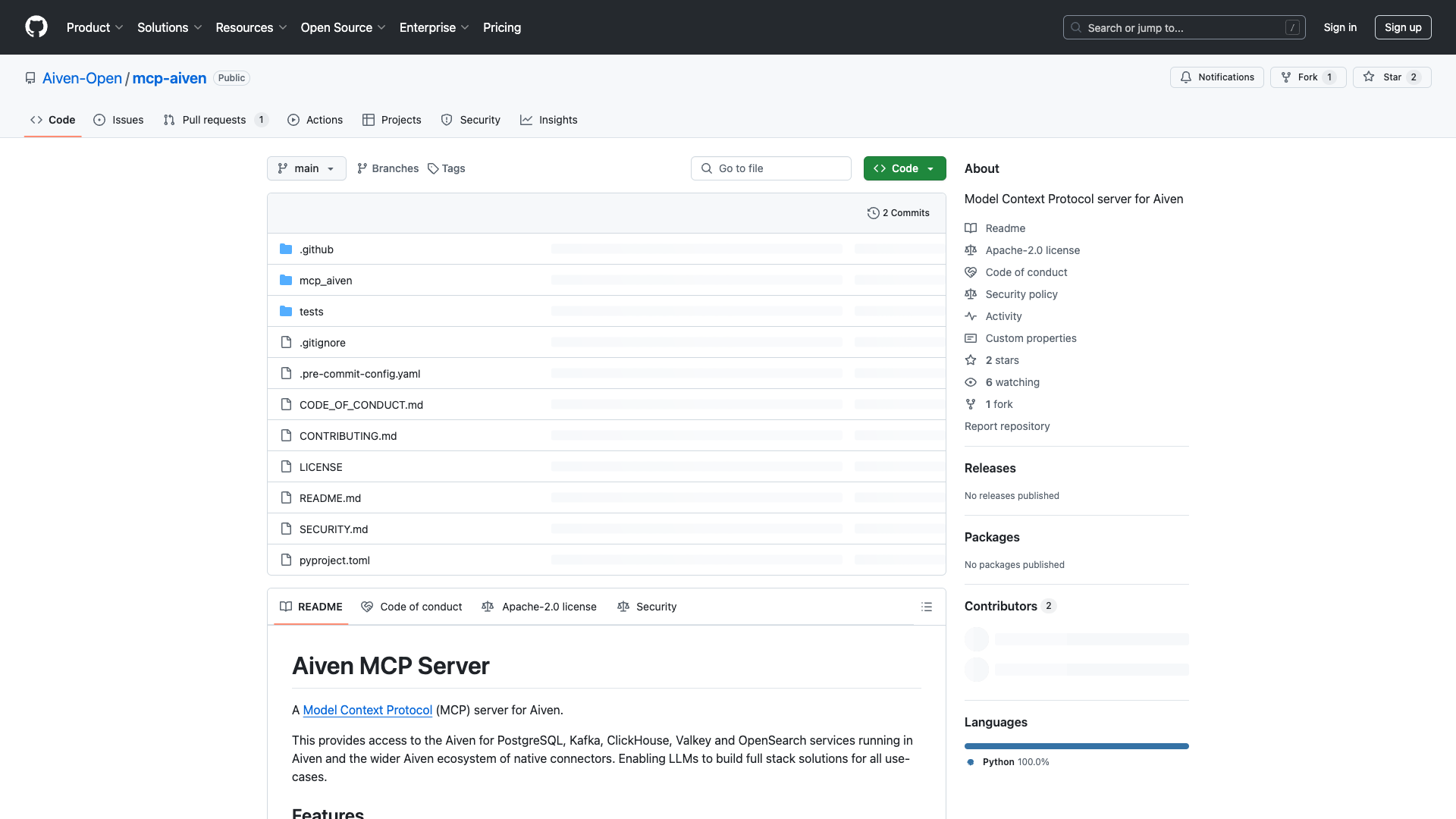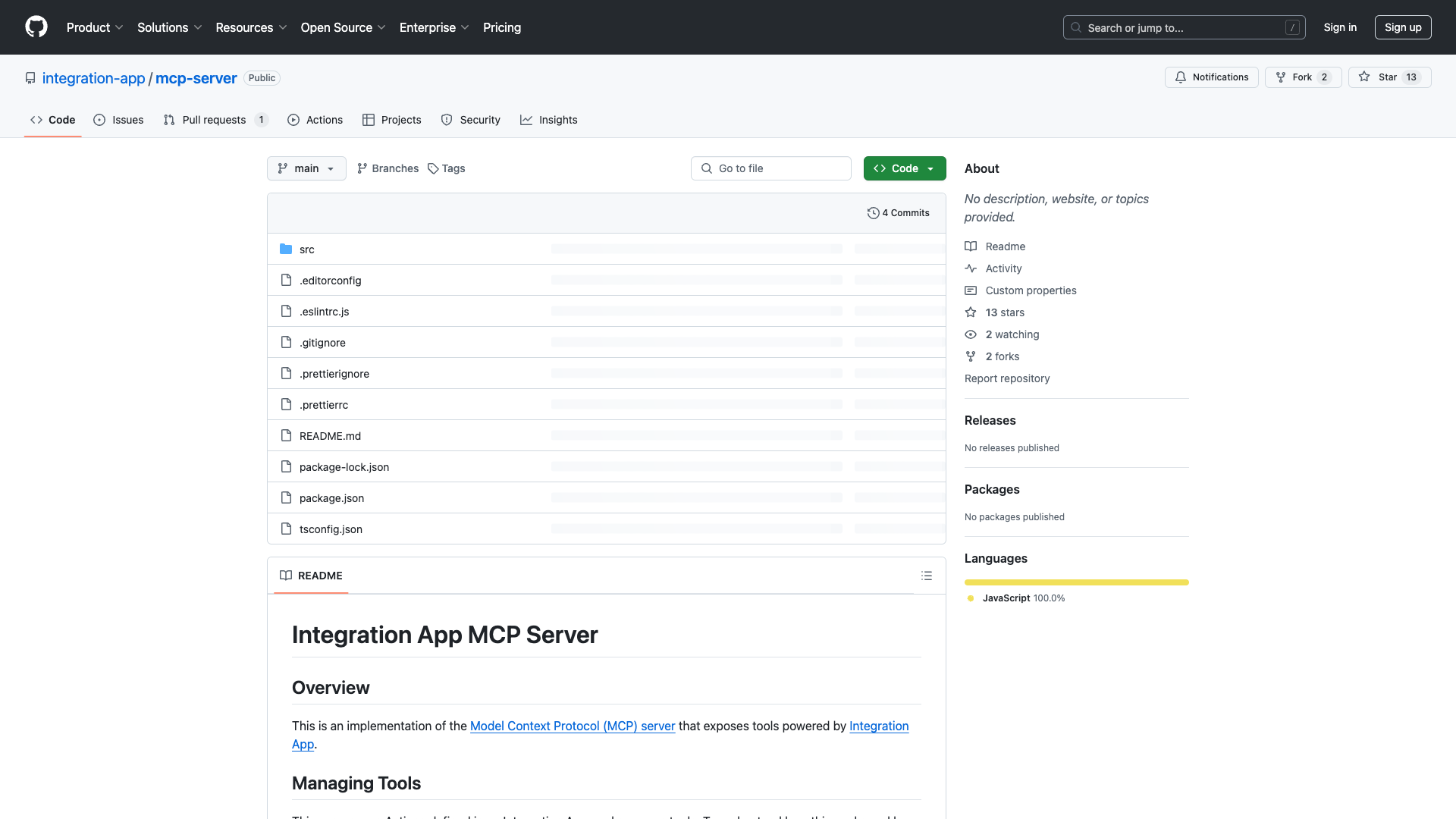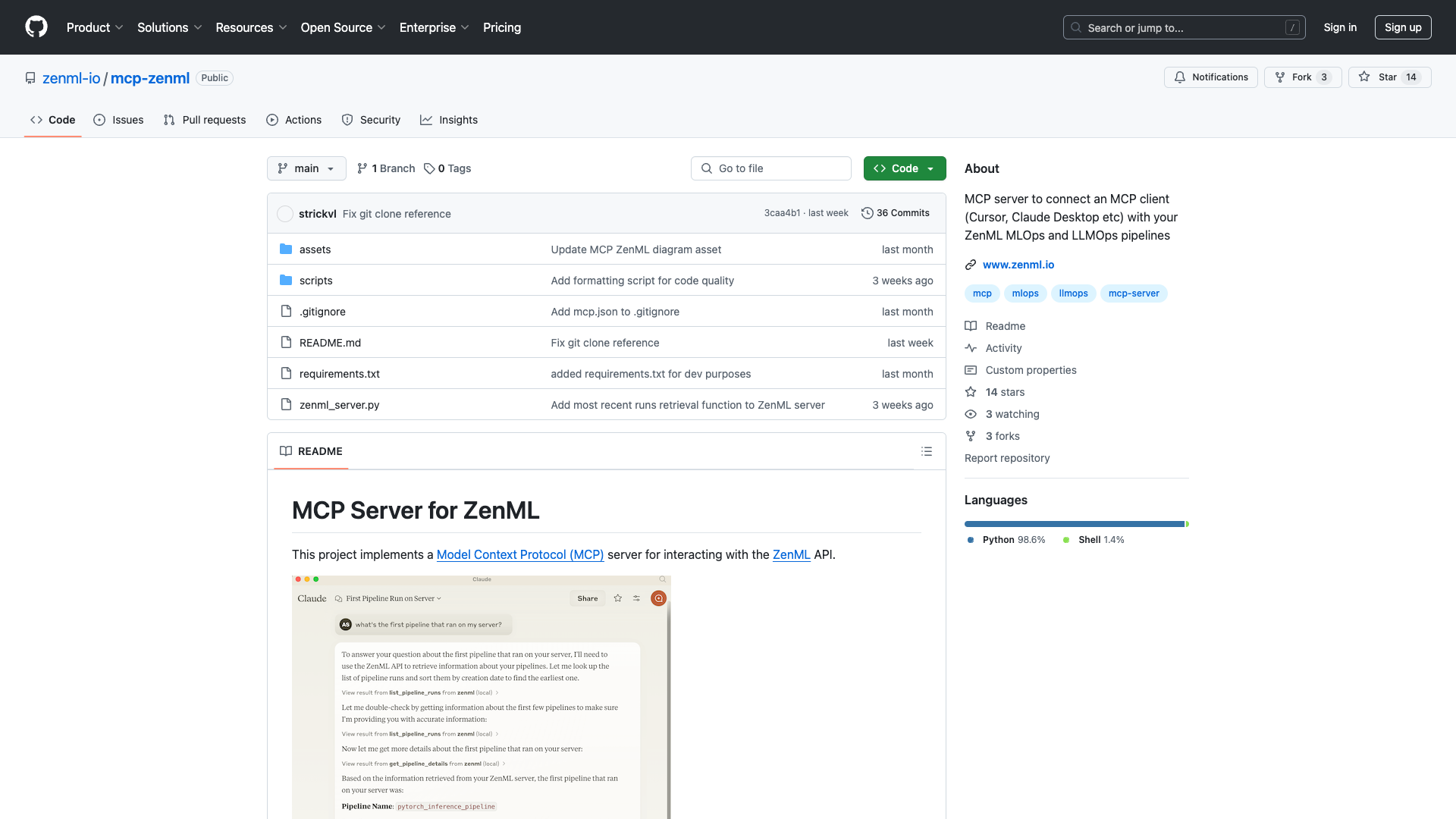Overview
The Lingo.dev Model Context Protocol (MCP) server is an innovative solution designed specifically for software developers and technical professionals looking to streamline the localization process in their applications. By leveraging advanced AI technologies, particularly Large Language Models (LLMs), Lingo.dev enables instant translations that can be integrated directly into development environments like Claude desktop and Open Cursor. This review delves into the features, usability, and community support surrounding the Lingo.dev MCP server, providing insights into its effectiveness for enhancing multilingual capabilities in software development.
Key Features
- Instant Translation Capabilities: Integrate leading language models to translate content in real-time, significantly reducing the manual effort traditionally required for localization.
- Seamless Integration: The setup process is straightforward, allowing users to easily connect Lingo.dev with popular AI tools. Documentation is provided to ensure compatibility across various platforms.
- Customizable Workflows: Users can tailor commands to meet specific project requirements, providing flexibility in how the tool is utilized within different environments.
- User-Friendly Documentation: Comprehensive guides are available to assist users of all technical skill levels in implementing translation features quickly and effectively.
Usability and Setup
Setting up the Lingo.dev MCP server is a user-friendly experience, especially for those with intermediate technical skills. Users begin by obtaining an API key from their project settings within the Lingo.dev application. The integration process is clearly outlined for both Open Cursor and Claude desktop, making it accessible even for those who may not be deeply familiar with command-line tools.
For instance, to integrate with Open Cursor, users simply navigate to the MCP tab in settings and add a new MCP server with the provided command. Similarly, for Claude desktop, users edit configuration files to include the necessary JSON structure for connecting to the MCP server. This clarity in documentation is a significant advantage, as it enhances productivity right from the start.
Performance and Functionality
The standout feature of the Lingo.dev MCP server is its instant translation capability. By integrating powerful language models directly into development workflows, users can translate content on-the-fly, which is a game-changer for those involved in multilingual projects. This feature not only saves time but also allows developers to focus on core tasks without the distraction of localization challenges.
However, while the integration is seamless, some users may find the customization options a bit overwhelming, particularly if they venture beyond standard setups. The ability to modify commands is appreciated, but it may require a deeper understanding of configuration files, which could pose a challenge for less experienced users.
Community Engagement and Support
The Lingo.dev community is vibrant and supportive, with active discussions on platforms like GitHub where users share best practices and troubleshooting tips. This collaboration fosters a sense of transparency and shared learning, which is essential for developers who value efficiency and innovation in their workflows. Although formal reviews are limited, anecdotal feedback indicates a positive reception regarding both the functionality of the MCP server and the support available from the community.
Areas for Improvement
While the Lingo.dev MCP server excels in its core functionalities, there are areas for potential enhancement. For instance, providing clearer context around error messages during initial configurations could alleviate frustration for users encountering issues. Additionally, expanding the range of supported languages could broaden the tool's appeal, catering to a more diverse user base seeking comprehensive localization solutions.
Conclusion
In summary, the Lingo.dev Model Context Protocol server is a robust tool that aligns well with the innovative mindset of its target audience. It offers significant productivity enhancements through cutting-edge translation technology integrated seamlessly into existing workflows. With strong documentation and community support, it stands as a compelling solution for developers facing localization challenges. If you're in search of a powerful localization toolkit that can elevate your applications, Lingo.dev is worth considering, provided you are prepared to navigate the intricacies of customization.
Open Link


